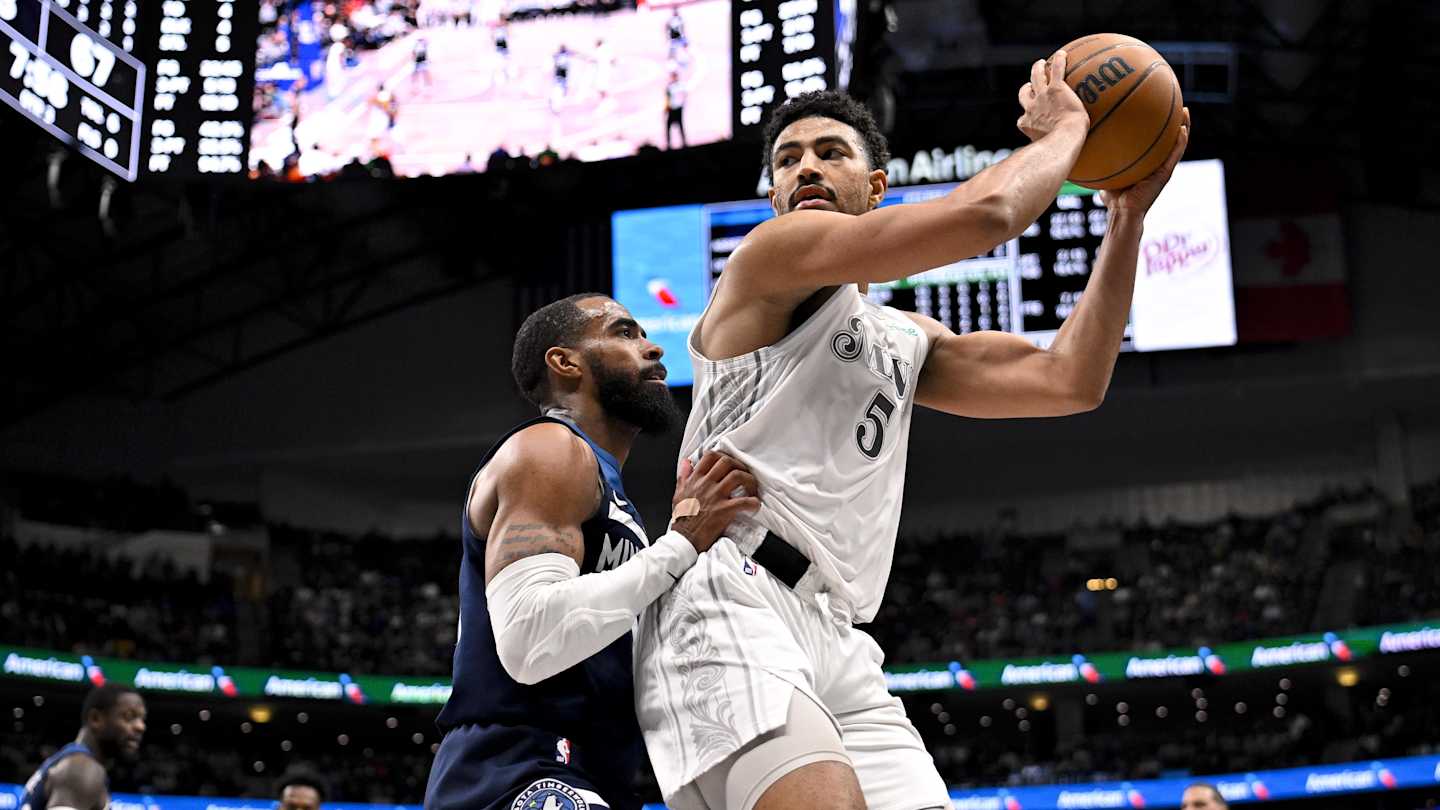The Dallas Mavericks’ front office has been under scrutiny following a series of trades, most notably the Luka Doncic deal. However, another transaction involving Quentin Grimes and Caleb Martin has also drawn attention. In a recent statement, Mavericks GM Nico Harrison addressed the trade, shedding light on the team’s motivations and strategic shift.
This article dives into Harrison’s explanation, exploring the reasons behind trading Grimes for Martin, the emphasis on defensive capabilities, and the broader implications for the Mavericks’ roster construction. Understanding these decisions is crucial for Mavericks fans and NBA enthusiasts alike, as it provides insight into the team’s vision and future direction.
The Grimes-Martin Trade: A Closer Look
At the trade deadline, the Mavericks and 76ers executed a deal that sent Quentin Grimes to Philadelphia in exchange for Caleb Martin. This move surprised many, especially considering Grimes’ potential as a young, developing player. Harrison’s recent comments provide context for this decision.
“It was really about getting Caleb Martin,” Harrison told reporters, according to WFFA. He added, “It was less about Grimes. We, obviously, we traded for Grimes, and we got a good look at Grimes. Great player. I think it worked out for both teams. It worked out for him. He’s a free agent situation, so we got to go to a team where he could shoot all the balls and really display his offense. And for us, we weren’t interested in that. We were interested in how he could help us win games.”
The Defensive Rationale: Why Caleb Martin?
Harrison’s statement underscores the Mavericks’ focus on improving their defense. Caleb Martin is known for his defensive versatility and tenacity, traits that the Mavericks seemingly valued more than Grimes’ offensive potential.
Harrison elaborated on the circumstances that allowed them to acquire Martin. “And we had the opportunity to get Caleb, which the opportunity only afford itself because Anthony Davis, he gave us that ability, because he had a trade clause, a trade kicker, and he opted out of that. And so that gave us the room to be able to do that.” This suggests that financial flexibility played a role in the decision, but the primary motivation was to bolster the team’s defensive capabilities.
Quentin Grimes’ Journey: From New York to Philadelphia
Grimes’ career trajectory has been somewhat turbulent since his time with the New York Knicks. After falling out of favor with coach Tom Thibodeau, he was traded to the Detroit Pistons before landing in Dallas. His stint with the Mavericks was relatively productive, but ultimately, he didn’t fit into their long-term plans.
According to the article, “In 45 games, Grimes averaged seven points while shooting 40 percent from the field and 36 percent from three on 4.7 attempts per game.” While these numbers are respectable, they didn’t align with the Mavericks’ vision for a defensive-minded role player.
Caleb Martin in Philadelphia: A Short but Impactful Stint
Martin’s time with the Sixers was brief but showed promise. Although he struggled with injuries and consistency, his defensive prowess was evident. The article mentions, “When the Sixers initially signed Martin during the 2024 offseason, they believed they were getting a stellar two-way player with plenty of postseason experience.”
Despite averaging nine points and four rebounds in 31 games, the Sixers opted to trade Martin for Grimes, prioritizing youth and potential. This decision reflects the contrasting approaches of the two teams, with the Mavericks prioritizing immediate defensive upgrades and the Sixers focusing on long-term development.
The Sixers’ Perspective: Betting on Grimes’ Potential
The Sixers’ decision to acquire Grimes underscores their belief in his untapped potential. At 24 years old, Grimes offers a combination of scoring ability and defensive upside that aligns with the Sixers’ rebuilding efforts.
The article highlights Grimes’ performance after the trade: “The veteran produced 22 points per game on 47 percent shooting from the field and 37 percent shooting from three on nearly eight attempts per game.” These numbers suggest that Grimes could develop into a valuable offensive weapon for the Sixers.
Looking Ahead: Implications for the Mavericks and Sixers
The Grimes-Martin trade has significant implications for both the Mavericks and the Sixers. For the Mavericks, it signals a commitment to defense and a willingness to sacrifice offensive potential for defensive stability. Whether this strategy will pay off remains to be seen, but it reflects a clear shift in team philosophy.
For the Sixers, the trade represents a bet on youth and potential. Grimes’ development will be crucial to the Sixers’ long-term success. If he can continue to improve his scoring and shooting efficiency, he could become a cornerstone of the Sixers’ offense.
Conclusion: A Trade Reflecting Contrasting Philosophies
The Dallas Mavericks’ decision to trade Quentin Grimes for Caleb Martin reveals a strategic emphasis on defense, while the Philadelphia 76ers’ acquisition of Grimes signals a focus on nurturing young talent. Nico Harrison’s explanation highlights the Mavericks’ immediate need for defensive reinforcement, while the Sixers aim to cultivate Grimes’ offensive capabilities.
Ultimately, the success of this trade will be judged by the performance of both players and the trajectory of their respective teams. For FYM News readers, understanding these nuances provides valuable insight into the ever-evolving dynamics of the NBA and the strategic decisions that shape team building.

Leave a Reply